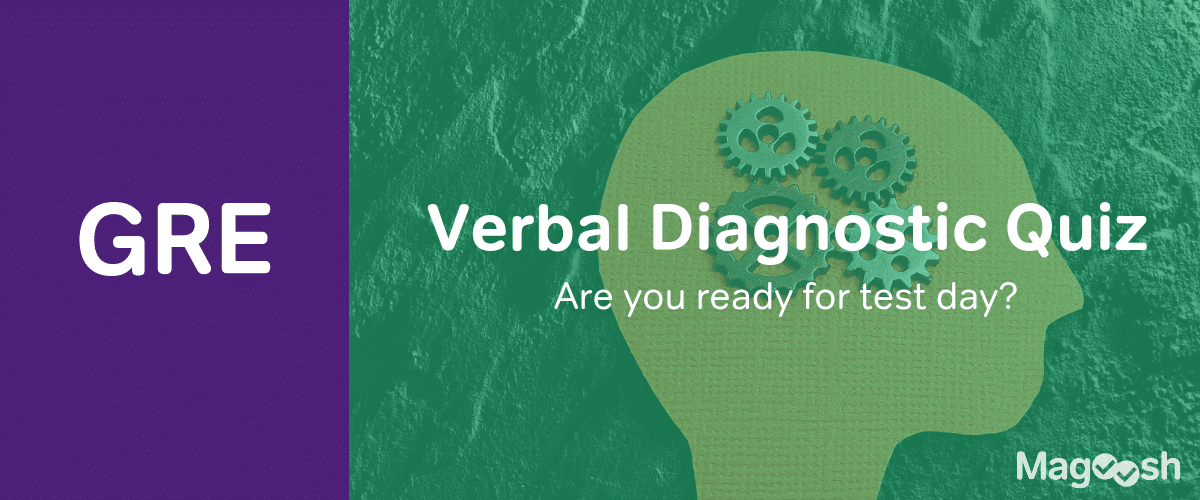It is easy to think that GRE pacing can just be reduced to a simple calculus: 30 minutes for 20 questions, equals 1.5 minutes per question. Things, however, are a lot more complicated than that. To really get a handle on pacing you are going to need to understand the nuances of the GRE verbal section.
Each GRE verbal section consists of 20 questions. Of those 20 questions exactly 10 questions will be Reading Comprehension questions. Knowing the number of passages, the length of these passages, and the number of questions accompanying each passage will help you determine how to pace yourself.
The long passage
First off, there is only long passage (400+ words) per GRE test. That means one, and only one, of the verbal sections will have a long reading passage—as long as you do not get an experimental verbal section (that section may or may not have a long passage). Each long passage will always be attended by four questions. I’ve yet to see any deviation from this, but it is not entirely impossible for the GRE to decide to throw in five questions for the long passage.
Nonetheless, how—and when—you attack the long passage is vital to your score. My advice: if you see a long passage, leave it for the very end. Reading 400+ words of jargon-laden, obscure prose is not only time-consuming, but also diminishes your mental reserves (which says a lot for a test that is all about diminishing your mental reserves). To make matters worse, there are only four questions for the long passage, or roughly one question per 100 words (compare this to the ratio of 1 question for 50 words for the short passages). Bottom-line: do not squander your time; leave the long passage for last.
The “Critical Reasoning” questions
The long passages are not the only time wasters. There is a breed of Reading Comprehension question I like to call “Critical Reasoning.” I think the only reason I do so is that is what this question type is called on the GMAT. One could argue that this epithet is misleading. After all, the entire GRE verbal section tests critical reasoning.
Semantics aside, these questions are basically a paragraph long argument followed by one, and only one, question, which asks you to evaluate/strengthen/weaken/etc. the argument in the paragraph. Some paragraph arguments are easy. Others are complex and long, and tax the mental reserves. If you are struggling just to get through the dense paragraph, or have eliminated A through E and throw your hands up in frustration, move on. There are other questions, even Critical Reasoning questions in the same section, that are easier. Another advantage of moving on is your brain may be more adept at decoding the question the second time around.
Short passages are your friends, unless…
Ah yes, the short passage. Less to read means less to get confused by, and, in the case of the short passage, fewer words per question. In general try to do these questions first. The only real caveat is that sometimes a short passage can be very difficult and/or be followed by difficult questions. If you realize you do not understand a short passage after a couple of reads, or if you are vacillating between two possible answer choices in a question, then move on.
The takeaway
So what does all this boil down to? Know your strengths and weaknesses. If you are good at Critical Reasoning questions, even the tough ones, then you may want to do those first. If you are a fast reader, then you may not want to leave the long passage till the end, especially if you struggle with other question types. And remember, never obsess too much over one question. Each question is worth the same number of points, and you can always go back to it.
Finally, the best way to develop a pacing strategy is by taking multiple tests, even the same ones over again (as long as there is a reasonable amount of time in between them). Doing so will help you navigate effortlessly through the verbal section, so that, by test day, all your focus will be on answering the questions correctly.






Leave a Reply